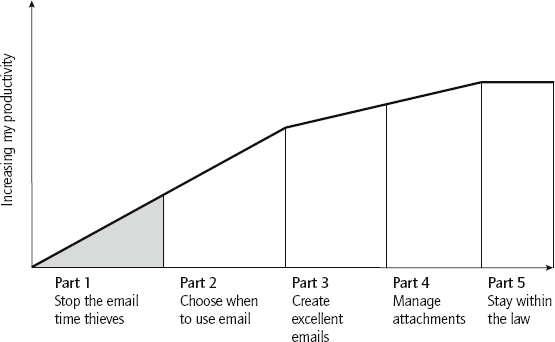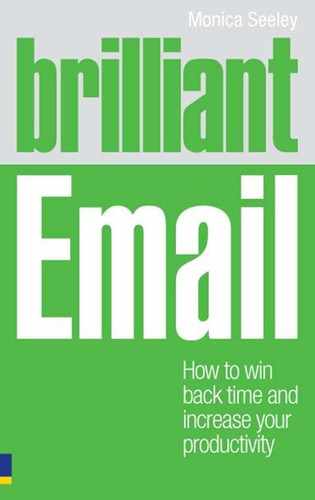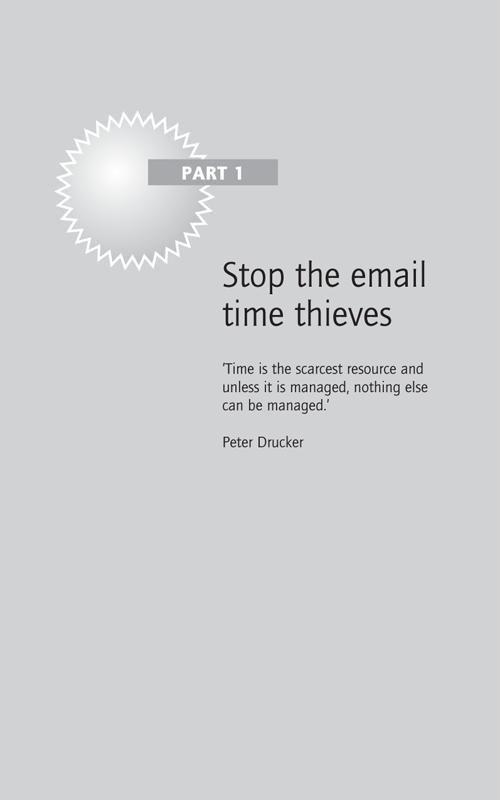A new email takes on a life and priority of its own. We have been conditioned to check our email continually and respond instantly to new message alerts. We save every email ‘just in case’, and hence require ever larger mailboxes and servers.
Five questions that recur regularly when talking to clients and running workshops are:
- How often do I really need to check my emails?
- How long can I leave an email before responding?
- Is it acceptable to switch off my mobile email device (BlackBerry and iPhone, etc.), when I am out of the office, particularly when on leave?
- What’s the best way to store and organise my mailbox?
- How can I stay within my mailbox size limit?
Constantly checking your email is probably the number one time thief, making us less productive and increasingly stressed. In 2005 a study sponsored by Hewlett-Packard found that constantly dipping in and out of your inbox can diminish your IQ by up to ten points. This is twice the impact inflicted by taking drugs such as marijuana for a prolonged period of time. Why? Because constant interruptions stop us thinking strategically and re-programme our brains to think only tactically. This is not a good idea if your job requires a high level of strategic thinking.
Spira and Goldes (in their report ‘Information overload: we have met the enemy and he is us’) estimated that constant interruptions of taking phone calls and checking emails cost American business a staggering $650 million per year. They estimated that the average knowledge worker (such as banker, lawyer, journalist) lost 2.1 hours a day due to interruptions. In addition, many studies have now shown that multitasking is not as productive as we like to imagine. For a good review of the growing evidence in favour of focused behaviour see Maggie Jackson’s book The Erosion of Attention and the Coming Dark Age and John Freeman’s The Tyranny of E-mail.
Interruptions by new email alerts add, on average, five to fifteen minutes to each task we do. Why? Because each time we stop, it takes us time to recover and retrace our steps.
What would happen if you didn’t look at your emails for an hour? As senders, we all think our email is the most urgent. As recipients, we feel we have to deal with each new email as it arrives. But, of course, this isn’t true.
As the volume of emails grows, so too does the amount of storage space needed. Current estimates suggest that users like you and I generate about 12 MB of emails per day. The larger the mailbox, the longer it takes to find an email, even with the fastest search engine.
The first step may be the hardest but it will reap the quickest rewards
The first and most important step towards being more productive is to prioritise your time and your information requirements.

Five steps to improving my productivity – stop the email time thieves
Part 1 of this book addresses the fundamental challenges of saving time and keeping control of your mailbox while:
- limiting the number of times you check your emails
- decreasing the number of emails you need to handle each day
- ensuring that every email that warrants a reply receives one
- taking time out from email when on leave
- reducing email addiction and dependency as appropriate.

